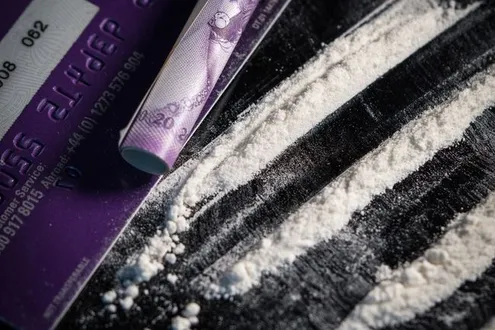Drugs, like morphine, affect the brain’s reward system by creating dopamine-induced feelings of euphoria. Surges of dopamine reinforce pleasurable behaviours and encourage repetition of that behaviour, even if the activity is unhealthy.
Over time, the brain adapts and the reward system becomes less responsive. This effect is known as tolerance. The high felt initially becomes much less intense with repeated drug use. To recreate it, increasing quantities of morphine need to be consumed and the body and brain become dependent on its use. Once someone becomes addicted, getting hold of it becomes all-consuming.
Why is Morphine Addictive?
Morphine binds to and activates opioid receptors in the brain and spinal cord. These receptors are part of the brain's natural pain-relief system. If the drug is suddenly stopped or reduced, withdrawal symptoms can occur that is why a morphine detox is often recommended. Withdrawal symptoms can be severe and include anxiety, muscle pain, insomnia, nausea, and cravings, which drive continued use of the drug to avoid discomfort.
Worried about addiction? Contact our Treatment Advisors for a free assessment.

Morphine elicits feelings of relaxation, euphoria and wellbeing; pleasurable effects that are tempting to recreate, time and time again.
Addiction to morphine often develops as a consequence of consistent abuse. Prolonged morphine use can lead to developing a tolerance. As such, you’ll need to take more and more of it to feel its effects.
Over time, the brain and body adapt to function with morphine in the system and if you try to stop using it, you’ll experience unpleasant withdrawal symptoms. A psychological dependence will develop soon after the physical one.
Morphine addiction is very difficult to overcome and many people will end up caught in a cycle of abuse trying to avoid the unpleasant symptoms and lows of non-use.
Someone addicted to morphine will compulsively seek it out and abuse it, while ignoring the negative consequences.
While morphine is illicitly manufactured and sold, as a prescribed drug, it is heavily regulated but still has the potential to be abused. Those suffering from chronic pain can misuse their medication to the point of developing a substance misuse disorder or prescription drug dependence.
Addiction to morphine develops for a number of reasons and is often the consequence of consistent abuse.
Environmental Factors
While many cases of morphine addiction have occurred in people who are already dependent on illicit substances, dependence is rising in those without prior substance abuse history.
There are factors at play however, that may influence the likelihood of becoming addicted to morphine. Spending time around people who abuse drugs can be influential. Parental guidance also plays a big part in the likelihood of someone developing an addiction. Children who are exposed to drug abuse at a young age are more at risk of developing their own problem later in life.
Peer pressure can result in recreational drug use and teens are especially prone to engaging in risky behaviours, as the areas in their brains that control judgement and self-control are still developing.
Psychological Factors
Different psychological factors can increase the risk of substance misuse. Drugs are often used to suppress emotional stress and relieve the symptoms of a range of mental health issues (dual diagnosis). Repeatedly turning to morphine to ease emotional pain or trauma increases tolerance. Over time, self-medicating in this way can become habitual and co-occur with a mental health disorder or poly-substance abuse.
Genetic Predisposition
While some people may be able to use morphine therapeutically, others will feel a strong impulse to consume it to excess. Drugs from the opiate family in particular, induce feelings of pleasure which trigger the brain’s reward centre and encourage repetition of use.
Neuroscience has shown that people have varying levels of ability and brain function to control impulsive urges. If these genes are passed down through the generations, family members can be more prone to developing addiction problems.
Changes in Brain Chemistry
Repeated use of morphine can lead to changes in the brain that challenge self-control.
Over time, the brain’s reward system becomes less responsive to the drug. This effect is known as tolerance. The high felt initially becomes much less intense and you’ll need to take more morphine to achieve the same feeling.
Long-term morphine abuse affects the brain’s chemical systems and functions, resulting in physical and psychological addiction.
Users can experience unpleasant side effects even when taking morphine therapeutically. Abuse of the drug therefore, has the power to change the way you look, act and feel. Some of these signs are evident, while others may be hidden or occur gradually.
Addiction tends to get worse over time. If identified and treated early, it may be possible to avoid the major consequences of the disease. Spotting the early warning signs is crucial and can aid intervention.
Physical Symptoms
- Fatigue and drowsiness
- Slurred speech
- Inattention
- Hallucinations
- Dizziness
- Itchy skin
- Nausea
Behavioural Symptoms
- Shifts in social circles; someone with a drug problem may choose to surround themselves with others who abuse drugs
- Avoiding contact with loved ones
- Repeated lying, dishonesty or deceit
- Poor performance at work or school
- Mood swings
- Decreased participation in activities or hobbies
- Self-isolation and secretive behaviour
- Neglecting daily responsibilities
Any time someone uses morphine without a prescription it is considered to be abuse. The term drug abuse means you are using morphine in a dangerous manner and potentially, without even realising.
While abuse is thought to be less severe than addiction, in reality, long-term abuse of controlled drugs can be equally harmful to your health.
The term addiction usually refers to a physical dependence but it generally means a psychological one too.
An inability to refrain from using morphine is the first symptom of addiction and sudden withdrawal can be intense and unpleasant. A medically-monitored detox and treatment programme within a residential rehabilitation or inpatient setting will offer the best solution to overcoming this difficult addiction.









